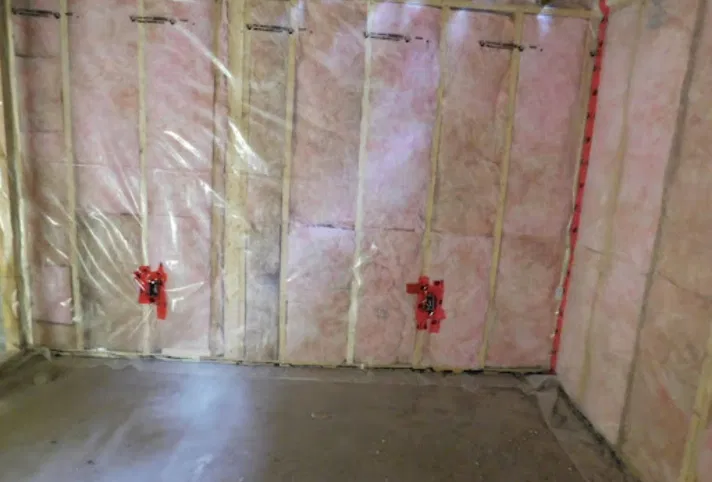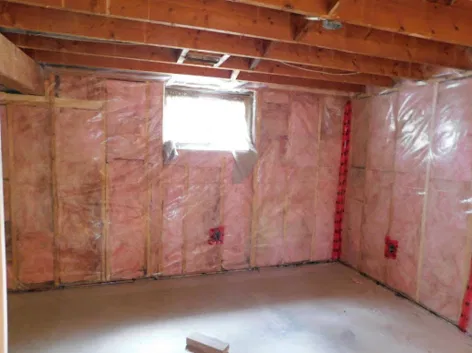NATURAL RESOURCES CANADA: Chapter 6: Basement Insulation:
Uninsulated basement walls can account for approximately 20 percent of a home’s total heat loss. This is due to the large, uninsulated surface area both above and below grade level. Contrary to popular opinion, the earth is a poor insulator.
Many basements have little or no insulation, this means there is much potential for improvement. Insulating basement walls can often be tied in with other repairs or renovation work such as waterproofing or finishing the basement.

Several types of basement wall insulation are commonly used to enhance energy efficiency and improve comfort. Here are the primary types:
Rigid Foam Insulation (Extruded Polystyrene or XPS):
- Description: Rigid foam insulation boards are made from polystyrene and provide a high R-value per inch of thickness.
- Advantages: Offers excellent moisture resistance, and thermal insulation, and can serve as a vapor barrier when joints are sealed.
Spray Foam Insulation (Closed-Cell):
- Description: Spray foam insulation is applied as a liquid that expands and hardens, providing a seamless, air-tight insulation layer.
- Advantages: Provides superior R-value per inch, air sealing, and can conform to irregular shapes and surfaces.
Fiberglass Batt Insulation:
- Description: Fiberglass batts are flexible blankets of insulation made from tiny glass fibers.
- Advantages: Cost-effective, easy to install in framed walls, and provides good thermal insulation.
Mineral Wool Insulation:
- Description: Mineral wool insulation is made from natural or synthetic minerals spun into fibers.
- Advantages: Offers good thermal and sound insulation, fire resistance, and is moisture-resistant.
Spray Foam Insulation (Open-Cell):
- Description: Another type of spray foam, open-cell insulation, is less dense and allows for moisture vapor to pass through.
- Advantages: Provides good thermal insulation and can be less expensive than closed-cell spray foam.
Considerations for Choosing Basement Wall Insulation:
- Moisture Management: Basements are prone to moisture issues, so choosing insulation with good moisture resistance or incorporating proper moisture control measures is crucial.
- R-Value Requirements: Determine the recommended R-value for basement wall insulation based on local building codes and climate conditions.
- Installation: Some insulation types, like spray foam, may require professional installation to ensure proper sealing and insulation performance.
- Long-Term Benefits: Consider the energy savings and comfort improvements over time when evaluating the initial cost of insulation.
Each type of insulation has its advantages and considerations, so it’s essential to select the right one based on your basement’s specific needs, local building codes, and budget considerations in the GTA.
Feel free to reach out to us anytime with your questions; we’re here to help!

Government Energy Rebate
Let Free Attic help YOU reduce your energy use up to 50%! Saving you Energy and Money through a Government Rebate! Cut the cost of heating your home with a simple Upgrade to your Home Insulation We will even help you apply for your Rebate! RELAX we got this!
